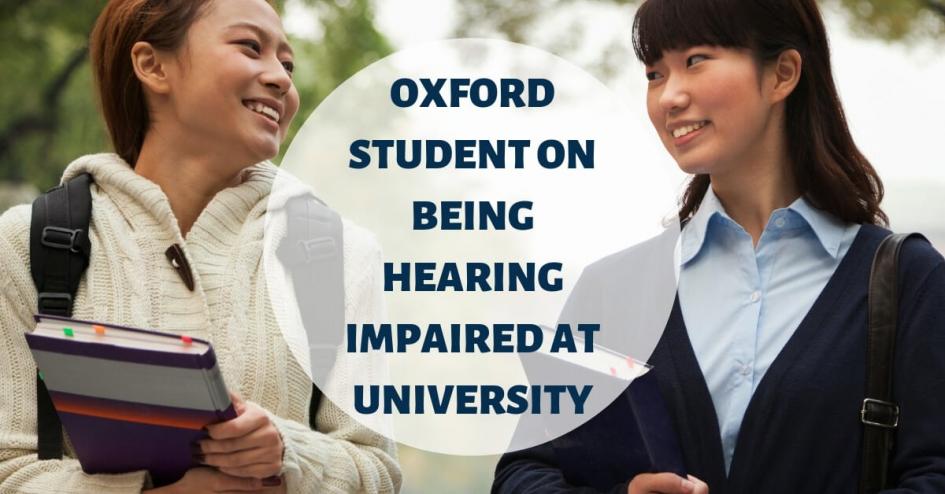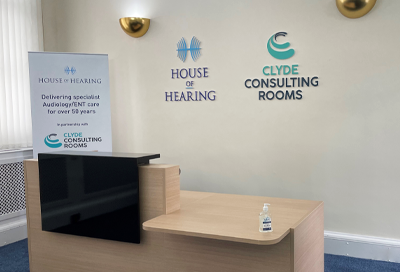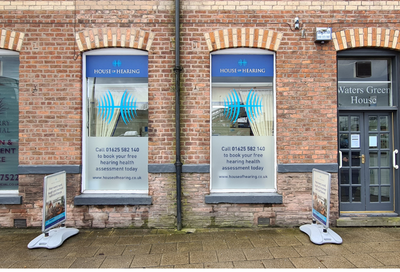
Oxford Student on Being Hearing Impaired at University
Deaf and hard of hearing students need to speak up at their universities if they want their needs to be taken more seriously and reach their full academic potential, says a current Oxford student, who has hearing loss himself. Oliver Shaw, a History student at Merton College, made the comments in an interview with the Oxford Student Magazine. As one of the few students with hearing loss at Oxford, Oliver has shared his story to try and show others with hearing loss that it doesn’t mean that you can’t reach your full potential. ‘My experience has shown that deafness… doesn’t have to stop you from achieving what you want to achieve,’ he says. Oliver has had to battle his hearing loss for his whole life, having been born with almost no hearing in both ears. His hearing loss was only discovered in his eighth month of life. He was then fitted with hearing aids over the course of the next 16 years and was able to receive education at the same standards as the others in his class. Developing a love of TV and music like other children, Oliver excelled at school despite his condition and it is a huge achievement that he has managed to get into one of the best universities in the world.
Challenges as a student
Now with a cochlear implant, Oliver describes the obstacles he has had to negotiate since arriving at the university. In this new environment, the rapid learning of new information in conjunction with communicating with a host of accents from around the world is not easy. ‘I’ve had to admit I probably do need a little bit more assistance,’ he says. There are also hurdles to overcome in his social life. Aside from the range of accents mentioned before, he finds it tough to converse with others at social events. ‘It’s not a passive process when you listen to a person. It’s exhausting at times, just to go to a social event for an hour or two hours is exhausting.’ Oliver admits that he usually has to rely on lip-reading and body signals to understand the gist of conversations, which he finds mentally exhausting. He has found ways to cope with the challenges, however. Benefiting from note-taking support from the university, Oliver notes that the University and its college welfare system has been instrumental in providing support for academic and social issues. He hopes that his experience will encourage others to seek the help they need at their university.
General advice for new students with hearing loss
Are you about to enter university with hearing loss? You don’t have to suffer in silence. Here are some tips to keep in mind.
Of course, it matters
If you don’t quite catch something in a seminar, you should ask the person to repeat it. If they trivialise it and say that ‘it doesn’t matter’, you should insist that they still respect your wishes. You are the one who decides whether it matters, not them.
Turn up early for the best spots
If you need to lip-read to hear better, arrive at your lectures early enough to make sure you can sit somewhere where you can see the lecturer’s mouth. If someone has taken the spot, ask nicely if you can sit there instead. This way you won’t waste a lecture by not being able to take it in.
Be the squeaky wheel
If you rely on hearing loops, campaign to make these available at all the lecture theatres you have lectures at. Your university is required by law to make changes to improve accessibility for all. There is nothing to be ashamed of about asking for this help. You’re paying money for the course and the least you can expect is for each lecture to be accessible to you.
Give you lecturers a nudge
Universities are required to inform lecturers of any students with special needs who are taking their courses. But lecturers may have other commitments and easily forget your needs. It is helpful to visit them during their open office hours and let them know what they could be doing to help you receive their lectures more effectively. They’re much more likely to remember small changes like not covering their mouth, or moving away from the microphone when speaking.
Meet other people like you
Talking though your experiences with like-minded people can make the world of difference. Whether you have hearing loss or are culturally Deaf, check to see if there are any societies or meetups that you could join.
Check if you’re eligible for financial help
Students enrolled in a university can apply for a Disabled Students’ Allowance (DSA) if they have a long-term health problem such as hearing loss. DSAs are paid on top of your other student finance, helping you pay extra costs you might have due to hearing loss. The great news is they don’t have to be paid back. Are you entering university soon and worried that you might have hearing loss? House of Hearing is happy to help you! Call us today to set up a consultation.
Our Clinics
All House of Hearing clinics are in town centre locations and accessible to public transport and parking. Home visits also available if mobility is an issue.


.png)
.png)
.png)


.png)

